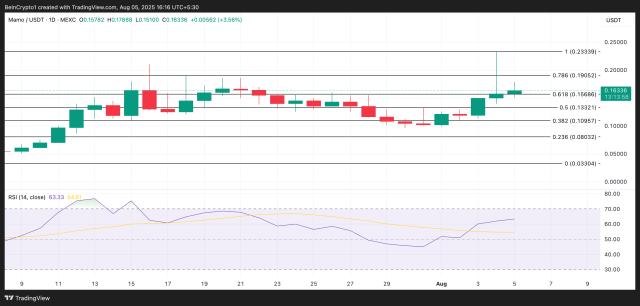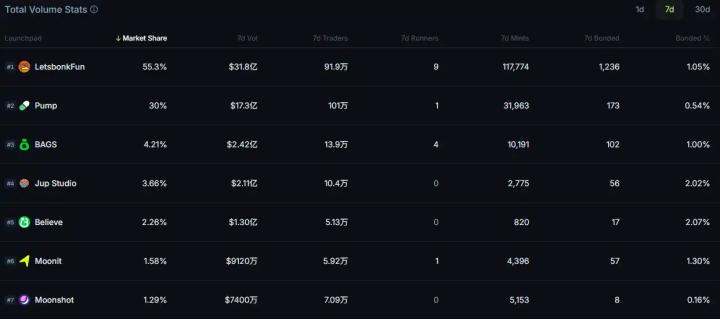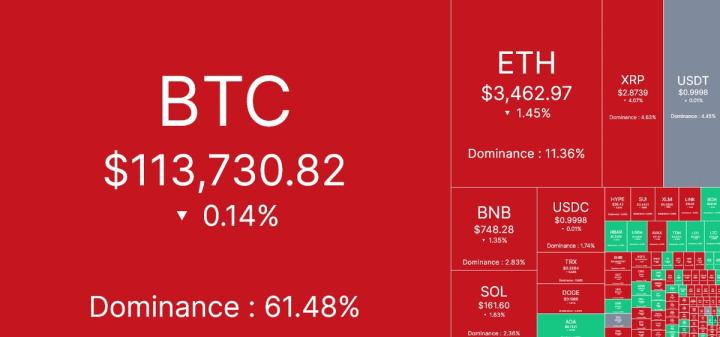This strategic shift from "non-recognition" to "legalization" is not accidental, as the Vietnamese government has recognized the immense potential of the crypto economy. Despite regulatory obstacles, Vietnam has one of the highest global crypto currency holding rates, ranking fifth globally, with approximately 20.95% of the population holding crypto assets and an annual inflow exceeding $100 billion. Simultaneously, Vietnam faces the need to address international anti-money laundering (AML) and counter-terrorism financing (CTF) pressures, having been placed on the Financial Action Task Force (FATF) gray list, requiring strengthened virtual asset management. Therefore, legalization is a necessary prerequisite for attracting investment, promoting digital economic development, and effectively regulating this emerging industry. This indicates that the Vietnamese government has shifted from mere risk prevention to actively embracing the opportunities brought by the digital economy, attempting to guide and regulate this emerging industry through establishing a sound legal framework, rather than simply suppressing it.
2 Vietnam's Crypto Currency Regulatory System Transformation
The official attitude change towards crypto currency classification reflects significant changes in its regulatory system. In the past, Vietnam's crypto regulation was imperfect and passive, primarily using a one-size-fits-all approach. However, with the rise of global crypto currency waves and changes in Vietnam's leadership, its current crypto currency regulatory system is rapidly improving, having formed a preliminary division of regulatory responsibilities and actively discussing and implementing multiple regulatory pilot projects, striving to effectively address challenges such as anti-money laundering (AML) and counter-terrorism financing (CTF) while embracing new technologies.
[The rest of the translation follows the same professional and accurate approach, maintaining the original structure and meaning while translating into clear, precise English.]The passage of the Digital Technology Industry Law is an important measure by Vietnam to address FATF pressure. The law clearly requires all digital asset activities to strictly implement anti-money laundering (AML) and counter-terrorist financing (CTF) measures to enhance security and transparency. This means that future crypto exchanges and related service providers must comply with global standards such as KYC and AML, and may be required to maintain compensation funds to protect users from cyber attacks, thereby reducing the risk of financial crimes.
3 Vietnam's Cryptocurrency Tax Policy and Its Latest Developments
The evolution of Vietnam's cryptocurrency tax policy has almost synchronized with its regulatory policies. Initially, due to the vague and contradictory definition of cryptocurrencies by Vietnamese authorities, regulatory policies were rough and one-size-fits-all, making it unrealistic to tax cryptocurrencies. However, the rapid expansion of cryptocurrency transaction volumes forced the government to recognize its legal status and prompted Vietnamese authorities to research cryptocurrencies. Especially entering 2024, the government has shown a stronger urgency in establishing a clear legal framework.
3.1 Currently, Vietnam's Cryptocurrency Transactions Remain in a Tax Gray Area
For a long time, due to the lack of clear legal definitions and regulatory frameworks, cryptocurrency transactions in Vietnam have remained in a tax gray area. As mentioned earlier, the Vietnam Ministry of Finance's 4356/BTC-TCT circular in 2016, while not prohibiting cryptocurrency transactions and defining them as "property" and "goods", did not address specific tax regulations. The State Bank of Vietnam's (SBV) 5747/NHNN-PC circular in 2017 also explicitly stated that it does not recognize cryptocurrencies like Bitcoin as a means of payment, further exacerbating legal uncertainty and making it difficult for tax authorities to effectively tax cryptocurrency activities. Additionally, Vietnam's 2015 Civil Code did not include digital assets in its definition of property, which also posed huge obstacles to cryptocurrency tax collection.
Compared to Vietnam's clear stock trading tax system, activities in the crypto field were exempt from tax obligations for a long time. This situation made Vietnam a de facto "tax haven" in the crypto field, attracting numerous crypto investors but also leading to significant tax gaps for the government.
3.2 New Regulations Outline a Legal Framework for Cryptocurrency Taxation
The Digital Technology Industry Law will officially take effect on January 1, 2026, which is a key step in Vietnam's cryptocurrency tax policy. Although it does not directly issue cryptocurrency tax law, it lays the legal foundation for future taxation. Despite excluding securities, stablecoins, and central bank digital currencies (CBDCs), this new law first legally defines "crypto assets" and "virtual assets" at the legal level. This milestone definition changes the previous ambiguous legal status of cryptocurrencies in Vietnam, making them potentially recognized as legal property.
In this context, the Ministry of Finance is finalizing a draft resolution on a pilot plan for cryptocurrency issuance and trading. The pilot will assess the possibility of applying value-added tax (VAT), corporate income tax (CIT), and personal income tax (PIT) to crypto asset transactions. The pilot plan will be conducted on a small scale and closely supervised by state management agencies to study how to determine crypto asset income, thereby establishing transparent regulations, avoiding budget losses, and protecting investor rights.
Regarding proposed tax rates, various discussions exist. One suggestion proposes a 0.1% transaction tax similar to stock trading, which is considered capable of generating significant revenue while not overly suppressing market vitality. If cryptocurrencies are classified as investment assets, transaction profits might be taxed as capital gains like stocks or real estate. Enterprises engaged in cryptocurrency trading may need to pay the standard 20% corporate income tax. Additionally, there are suggestions to levy 5-10% personal income tax on non-fungible token profits, 1-5% withdrawal fees on foreign investor profits, and consider providing a 10% corporate income tax incentive for pilot exchanges (for the first five years), as well as exempting digital asset transactions from VAT to promote liquidity.
4 Outlook for Vietnam's Cryptocurrency Policy
Vietnamese authorities' attitude towards crypto assets has significantly transformed from early wariness and restrictions to current active exploration and regulation. This transformation reflects a pragmatic balance between controlling financial risks (such as money laundering and fraud) and seizing digital economy development opportunities. Authorities may have recognized that simply banning or ignoring crypto assets would lead to talent and capital outflow and miss the opportunity to occupy a place in the global digital economy wave. In fact, Vietnamese authorities have included blockchain technology, digital assets, and cryptocurrencies in the national strategic technology list, alongside cloud computing and artificial intelligence. This indirectly indicates that Vietnam has viewed digital assets as key elements driving national digital transformation and economic growth.
Based on current development trends and clear government signals, there are reasons to believe that Vietnam's future crypto asset policy will continue to exhibit a "cautious and inclusive" characteristic. Specifically, the following predictions can be made about the direction of Vietnam's future crypto asset policy:
First, more regulatory details will be issued and implemented. With the Digital Technology Industry Law taking effect, more supporting regulations and guidelines will be introduced, clarifying licensing requirements, operational standards, and consumer protection measures for crypto asset service providers. Regulatory sandboxes will continue to play a role, providing a controlled testing environment for new business models and technologies to accumulate experience and improve long-term regulatory frameworks, ensuring innovation occurs under controllable risks.
Second, the tax framework will be gradually improved and implemented. It is expected that after the Digital Technology Industry Law takes effect, the Ministry of Finance will accelerate the issuance of specific tax rules, clarifying taxation methods, rates, and collection processes for various crypto activities. The successful e-commerce platform tax system will likely be introduced to crypto trading platforms to improve tax efficiency and compliance. Vietnam may also develop differentiated tax policies for different types of crypto activities and consider combining capital gains tax and turnover tax to achieve tax fairness and effectiveness.
Third, digital assets will gradually integrate with the traditional financial system. The Vietnamese government will continue to promote the integration of digital assets with the traditional financial system, such as exploring crypto banks, national crypto exchanges, and stablecoins to build a more modern financial infrastructure.
In conclusion, Vietnam may become a "compliant innovation" exemplar in the Southeast Asian crypto economy, competing with Thailand and Malaysia for the Southeast Asian crypto market. Vietnam has a massive crypto user base and a relatively clear digital economy development strategy. The recently passed Digital Technology Industry Law and ongoing tax pilot and sandbox mechanisms indicate its transition from a "gray area" to "clear regulation". This transformation will help it stand out in the Southeast Asian region as a market that both embraces innovation and ensures compliance. Vietnam's experience may provide a viable template for other emerging and developing countries on how to gradually establish a sound crypto asset regulatory and tax system without stifling innovation, thereby transforming the crypto market's potential into national economic growth momentum.
Disclaimer: As a blockchain information platform, the articles published on this site represent only the personal views of the authors and guests, and are not related to Web3Caff's stance. The information in the article is for reference only and does not constitute any investment advice or offer. Please comply with the relevant laws and regulations of your country or region.
Welcome to join the Web3Caff official community: X(Twitter) Account丨Web3Caff Research X(Twitter) Account丨WeChat Reader Group丨WeChat Official Account








